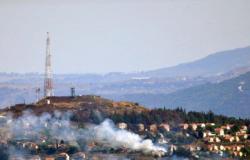After the long months of confinement due to the pandemic of COVID-19 lovers of good food, outdoor life, sport and relaxation have rediscovered theSouth Tyrol as one of the favorite mountain destinations for holidaymakers to spend a short week or a long stay. With 150 kilometers of extension, covering its territory from west to east and 90 km, from north to south, Alto Adige offers a heterogeneous variety of landscapes and experiences. You can range from Three peaks of Lavaredo to fairy-tale villages, such as that of Valles, in Val Pusteria, to walk in the Gardens of Castel Trauttmansdorff among the scent of flowers that smell of honey, staying in a traditional farm, in contact with nature and rural life.
The Gallo Rosso cooking school above Bolzano. At the beginning, the dumplings from the Vinterra peasant tavern
The Red Rooster
«Since its origins, the main purpose of Gallo Rosso has been to support the farmers of the farms in the development of activities to accompany agriculture, together with that of bringing people closer to the lifestyle of South Tyrolean farmers», he explains Elisabeth Oberparleiter who deals with Red Rooster. The objective of this ambitious project has therefore been to allow South Tyrolean farmers new sources of income since 1998, to avoid the depopulation of the valleys and on the other to offer tourists the possibility of getting to know the rural world of theSouth Tyrol.
The fashion for spending holidays on farms began around 1850, but it was after Second World War that among the wealthy of Bolzano there was a widespread tendency to desert the hottest city in Italy from June to September to take refuge in the mountains, in search of a bit of coolness. Thus was born the idea at the Südtiroler Bauernbund, theSouth Tyrolean Farmers and Direct Growers Union, to come together in an Association that would protect the interests of peasant families, since many farms could no longer live from agriculture alone. 26 years later, the Gallo Rosso range of experiences has consolidated and diversified, attracts tourists from neighboring countries and relies on 5 fundamental pillars.
Breakfast with farm products at the Gapphof farm
Holiday on the farm
The South Tyrolean farm is a typical mountain farm usually composed of a main building, which includes the farmer’s house, the livestock stable and other spaces such as the barnThe chicken coop, the bread oven. The farms have agricultural land, used for growing fruit, vegetables, cereals, often organic or pastures for livestock. The farm is generally managed by a family of farmers who take care of all the work necessary for running the farm, from looking after the livestock to cultivating the fields. Their protection and safeguard contributes to maintaining biodiversity and preventing the hydrogeological instability of mountain valleys. The farms produce a wide variety of agricultural products, which are often sold directly to consumers or local restaurants. Many of them also offer the possibility of staying for farm tourists who can thus live in contact with nature and learn about rural life. Gods about 25 thousand farms present in South Tyrolthose certified for hospitality with the farmhouse formula from the Gallo Rosso selection are only 1,645 and among these only eight offer full board, while sixty guarantee half board. Unlike simple farmhouses, the masi Red Rooster they must possess a rigorous series of requirements and are classified based on their peculiarities. They range from the 2 Fiori which offer “warm and friendly hospitality” to the 5 Fiori, which guarantee excellent furnishings, with wooden-floored bedrooms, unique experiences, breakfasts and the sale of excellent products from the farm.

Innerbachlerhof, one of the contemporary farms in South Tyrol
Two farms contemporaries
To understand what the recovery of the tradition of the farms means and how the new generations carry forward the rediscovery and valorization of the traditions of their ancestors, trying to give them a new future, we have found two beautiful stories that are worth coming to know. One is that of Innerbachlerhof in Postal: contemporary 5-flower farm (maximum score) where Christoph Piock-Ellena and his wife Irene carry on the farm that their family has managed for six generations. The two have renovated the house today: the farm has been completely renovated and has acquired an attractive minimalist design. Here you can stay, taste the Freiherr or Merlot-Lagrein Graf red wines Merano wineryvisit the farm and cook together with the hosts. TO Gapphof, another contemporary 4-flower farm in Lagundro, just outside Merano, Clio and her husband Christian Waldner manage this ancient family farm which they have enriched with a beautiful swimming pool in the shade of the apple orchard. In a renovated boutique-style space, which retains the ancient original spaces on the ground floor, the farming couple organizes many activities and offers their products and creations for sale.

Matthias Messner collects the products of the Lenkhof farm
There are 86 “doc” farms
The second pillar of Gallo Rosso is represented by the high quality products made by the 86 certified farms. To obtain the Red Rooster brand, each product must comply with a specification that provides a series of rules. «At least 75% of the raw materials used for processing come directly from the farm, only a maximum of 25% can be purchased from other farms in South Tyrol – he says Tiziano Pandolfi, which deals with the communication of Gallo Rosso – The processing of the products must then be carried out on the farm itself. The processing of the products takes place directly on the farm.” The use of additives and excipients is strictly regulated. The raw materials used must be GMO-free. Only healthy techniques that respect health and the environment are used for conservation. Having said this, each product to obtain the Red Rooster brand must have passed a blind tasting by a commission of independent experts. To discover the flavors of the farm, the Red Rooster Project has equipped itself with a new pillar since last autumn: the Cooking School, where some of the best chefs of the peasant taverns they alternate with theirs cooking class open to the public to teach how to cook traditional dishes and discover the ingredients produced by local companies.
The festival at the Kurhaus
A unique opportunity to discover the flavors of the farm is represented by the Farm Food Festival hosted every year in the splendid spaces of the Kurhaus (farmfoodfestival.it). It is here that some of the best producers met with their delights, on the occasion of the second edition which was held last March. Arrived at Merano give her Dolomites, from the Isarco Valley, from the Venosta Valley, from Bolzano and from the lateral valleys, with their peasant products, the agricultural companies bring the best of their productions for tasting and sale, with many new products that demonstrate how much space is dedicated to the research and development of new product lines. The Pflegerhof farmin Castelrotto has become famous for its 500 varieties of herbswhich transforms into herbal teas and infusions (pflegerhof.com), as well as i Wipptal Aromatic Gardens of organic medicinal herbs (biowipptal.it). Behind the brand Kirnig instead there are two young farmers who grow oriental mushrooms in the perfectly air-conditioned rooms of the old barn shiitake And cardoncelli which they dry or preserve in oil (kirnig.com). The Lenkhof farm in his dairy, in addition to cheeses and yogurt, he is much appreciated for his carrot and pumpkin chutneys, spicy jams inspired by classic Indian sauces, excellent to pair with their cheeses (lenkhof.com). Even those who dedicate themselves to traditional products innovate. This is the case of Eva Bio (eva-bio.com), which in Val Venosta does not stop obtaining awards and recognition, such as the “Golden Pear”, for its apple juices made with the most diverse cultivars, sometimes mixed with other fruits and even vegetables, such as red turnip.
Point of reference for chefs
The Farm Food Festival it has also become a point of reference for restaurants in the region, which use this event to meet producers and to discover many good products to include in their menus. This applies to the most modern and contemporary venues such as Lackner Stub’n of Lagundo, at suburbs of Merano (lacknerstubn.it), which offers fusion cuisine that combines South Tyrolean flavors with Asian and Mediterranean ones in a refined environment, combining them with the best South Tyrolean wines but also for the excellent peasant bistro Vinterra (vinterra.it) of Malles, managed by one social farming cooperativewhich deals with the social inclusion of disadvantaged people, managing organic crops and a catering business. Following the philosophy of Gallo Rosso’s short supply chain, from field to table, how can you not try the peasant taverns? Already decades ago, farmers opened their own cellars And Stube to guests to invite them to taste typical South Tyrolean cuisine.

A herbal tea with freshly harvested herbs from the Wipptal Aromatic Gardens in Prato-Val di Vizze
The peasant taverns
Today, peasant taverns enjoy great popularity and there are even those who have earned inclusion in the Michelin. This is the case of the organic farm Schnalshuberhof in Lagundo where Bauer Christian Pinggera carries on a centuries-old tradition in his historic Stube, together with his wife and elderly father, with a menu based on the great South Tyrolean classics made with the highest quality products, starting with his speck. «In peasant taverns, 80% of the products must be South Tyrolean and 30% must be produced directly from the farm: meat, cheese, cured meats, wines, eggs, spirits and three varieties of juices!», he explains the farmer-innkeeper is proud. There are twenty-five peasant taverns in Gallo Rosso, five of which also offer hospitality. Focusing on the Merano area, the tavern deserves a culinary stop Nalserbacherkeller of Nalles (tel. 335 5887257) where the Pallweber family produces excellent honey and the local traditional wine, Schiava, and Zmailer-Hof in Scena (tel. 339 6649958) which thanks to the prowess of the good cook Martha Thaler Bäuerin it earned a mention in the French Gault&Millaut. Every season is good to try the cuisine of these valleys, but if you are looking for a special occasion, after spring and summer, come back in autumn, on the first Saturday in October, the official start of the Törggelen, when all the Buschenschank light the bonfire chestnuts. And the farmers also open their farms for guided tours.












